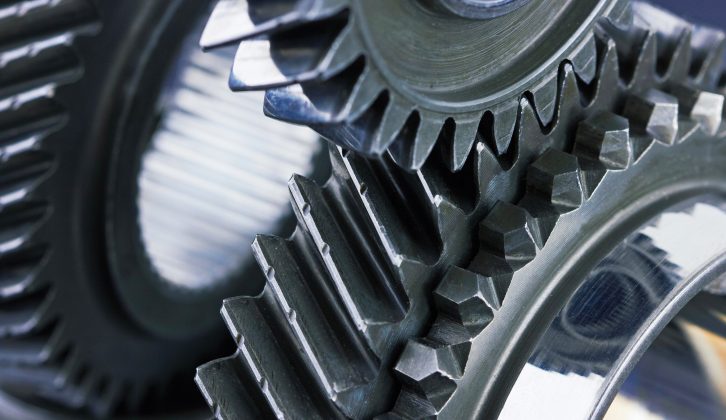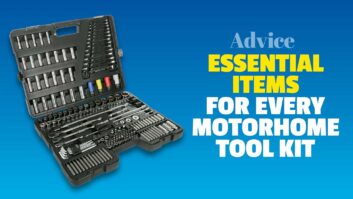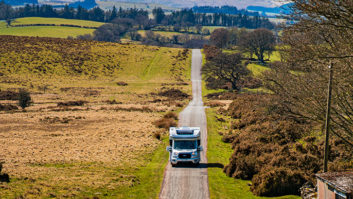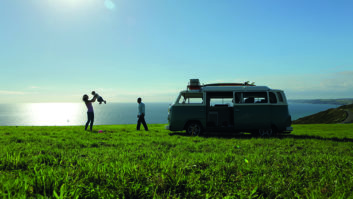What plans do you have for dealing with a ’van breakdown?
Whether it’s a puncture or dashboard warning light, or even a more serious problem such as a gearbox failure, do you know what you would do?
Most people don’t seem to think about the possibility of a problem, and quite a few have no contingency plans at all. In fact, I used to be one of those.
Are you covered?
Being a trained mechanic, I never felt the need for breakdown cover. That was until our gearbox snapped its mainshaft at the end of a 10-day holiday just as we tried to pull off our pitch…
After that incident, I now ensure that I have breakdown cover that will get my family and my motorhome either to a garage for repair or, better still, returned home where I can carry out the repairs myself.
The problem certainly highlighted the importance of taking proper precautions.
On that occasion – when the gearbox spat out its bits – a friend took my wife, children and dog home while the site manager towed our stricken camper to an out-of-the-way spot.
A few phone calls found me a secondhand gearbox and a good friend who could pick it up and deliver it to me.
Four days later I returned home with the camper. I then had to remove the ‘new’ gearbox and rebuild it due to most of the bearings being shot. The racket it made on the way home was terrible!
Ignorance isn’t bliss
I have frequently read on internet forums about people seeing warning lights on their dashboard, but they carried on driving because the vehicle “felt okay”.
I’ve even read of those with an earlier Fiat Ducato who have had fifth-gear failure, but who continued the journey using fourth instead. In fact, one of the latter recently came to see me.
It was a couple who live close to us. Their story was that they were trundling down through France last summer and were crossing the Millau Viaduct when the gearbox dropped fifth gear.
Being in the middle of the bridge, they selected fourth and carried on. But, not many miles later, the ’box collapsed altogether with a loud bang and lots of crunching sounds.
The ’van in question was a 1988 Swift Kon-Tiki on the two-litre petrol-engined Ducato (Talbot Express).
Their recovery service brought the vehicle back home, where it sat at the back of their drive for months. But, with a new season of motorcaravanning begging their indulgence, they approached me with a view to fixing the motorhome.
Now, I don’t normally take on big jobs like this, because there’s only me in the workshop. But I felt quite sympathetic towards the couple, and grudgingly agreed to see what I could do.
Oily issues
Once the motorhome was at my workshop, I soon had the gearbox out. Thankfully the old Express is a much simpler beast to work on than modern vehicles, and in less than two hours the unit was on the bench.
Removal of the fifth-gear housing revealed a very sad sight, with just about all of the gear teeth being separated from the gears themselves.
I did enquire with a couple of local transmission repairers, but they both said the same thing – “can’t get the bits, mate”.
However, a couple of hours spent trawling the internet found me a used-but-good-condition ’box. It was in Scotland, but delivery was available for a fair price.
While the ’box was out I fitted a new clutch. All the engine mountings were very tired, too, so they will also be replaced.
There won’t be much change out of a thousand pounds by the time it’s all done, but the couple love their ’van and really want to get it fixed.
The moral of the story
So, what can you learn from this? If your gearbox drops a gear, immediately pull over to the side of the road and call out the breakdown people.
I think I found the cause of the failure, too: a drastic lack of oil in the ’box. When I removed the drain plugs, about half an eggcup-worth came out of the entire ’box – it should have had two litres in it.
Even though there were no obvious signs of major leaks, the underside of the ’van had a liberal coating of thick oil that I suspect used to reside inside the gearbox.
Keep on top of your motorhome’s maintenance!
The lack of routine maintenance on some older ’vans is often quite startling.
Another recent elderly visitor to the workshop had coolant the like of which I have never before seen in 39 years of motor-trade life.
This happened to be a 27-year-old Talbot that was in for a service. When I checked the antifreeze strength, it turned out that there was none – as in, no antifreeze at all!
By my reckoning the coolant must have been about 70 per cent rust and silt. It was so bad that it required four flushes to get clear water running through the system.
Sadly the brake fluid wasn’t much better, with an indicated 10% moisture content, so that got flushed and replaced, too.
Brake fluid is hygroscopic, which means that it draws water out of the air. Because the water is heavier than the brake fluid, it gradually falls to the lowest parts of the system – the wheel cylinders – which also happen to be the hottest parts.
Under prolonged braking, temperatures well in excess of the boiling point of water can be generated, causing the water content to boil and turn to steam.
This steam is easily compressible, and causes a very spongy pedal. To help avoid water in the brake fluid, you should have the latter replaced every two to three years.
A keen motorcaravanner, Practical Motorhome’s technical expert Diamond Dave runs his own leisure vehicle workshop. Find out more at Dave Newell Leisure Vehicle Services.
Most people don’t seem to think about the possibility of a problem









